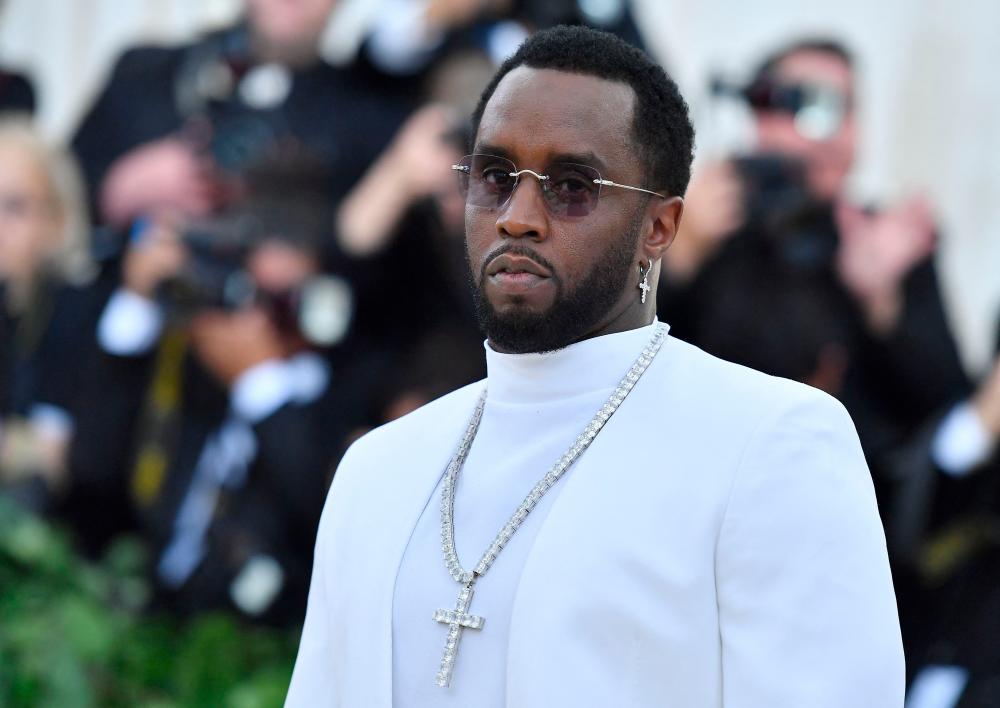NEW YORK: Once hip-hop's flashy impresario, Sean “Diddy“ Combs now sports unruly, gray hair and only appears publicly in court, where he will be a regular starting Monday as his federal sex crimes trial gets underway in New York.
Jury selection will kick off the blockbuster proceedings, the next chapter for the once-powerful mogul, whose efforts in recent years to rebrand as “Brother Love” were thwarted by a criminal indictment and a mountain of civil suits alleging he committed harrowing sexual abuse.
The 55-year-old founded the Bad Boy record label in 1993, with proteges including the late Notorious B.I.G. and Mary J. Blige, and is frequently credited with moving hip-hop into the mainstream.
Combs, who has used various monikers over the years including Puff Daddy and P Diddy, amassed vast wealth, not least from his ventures in the liquor industry.
But despite his efforts to cultivate an image of a smooth party kingpin and businessman, the federal criminal case and multiple civil suits describe Combs as a violent predator who weaponized his fame to victimize men and women.
He has no major convictions but has long been trailed by allegations of physical assault, dating back to the 1990s.
One of the key elements in the New York trial will be his relationship with singer Cassie, whose real name is Casandra Ventura.
The pair met when Ventura was 19 and he was 37, after which he signed her to his label and they began a romantic relationship.
In late 2023, she opened the floodgates against Combs with a litany of allegations against him, including a 2018 rape.
Though that case was quickly settled out of court, a string of similarly lurid sexual assault claims followed -- including one in December by a woman who alleged Combs and others gang-raped her when she was 17.
Combs has denied every accusation against him, but the case has left his reputation and legacy in tatters.
Dark shadow over global fame
Born Sean John Combs on November 4, 1969, in Harlem, the artist entered the industry as an intern in 1990 at Uptown Records where he eventually became a talent director.
He gained a reputation as a party planner, which would be central to his brand as his fame rose.
In 1991, he promoted a celebrity basketball game and concert at the City College of New York that ended in a stampede, leaving nine people dead.
The event was over-capacity by the thousands and resulted in a string of lawsuits, with Combs blamed for hiring inadequate security.
He was fired from Uptown, and founded his own label, Bad Boy Records.
Thus began his quick ascent to the top of East Coast hip-hop.
His disciple The Notorious B.I.G. became the genre’s king following the release of his landmark debut album “Ready to Die” in 1994, up until his shock murder in 1997.
Combs boasted a number of major signed acts and production collaborations with the likes of Blige, Usher, Lil' Kim, TLC, Mariah Carey and Boyz II Men.
He was also a Grammy-winning rapper in his own right, debuting with the chart-topping single “Can’t Nobody Hold Me Down” and his album “No Way Out.”
The single “I’ll Be Missing You” was a tribute to Biggie and an instant hit, with other major tracks including “It’s All About The Benjamins” and “Been Around the World.”
He built an image as a brash hustler with unapologetic swagger, a major producer who also ventured into Hollywood, reality television and fashion and had high-profile romantic links with the likes of Jennifer Lopez.
For more than a decade beginning in 1998, his lavish White Parties were the toast of the showbiz A-list party circuit.
As recently as two years ago, he hammed it up for cameras at Manhattan's flashy Met Gala, where he was a regular.
The high-profile fundraiser coincidentally will take place on Monday, the same day that lawyers start questioning the prospective jurors who will determine Combs's fate.









